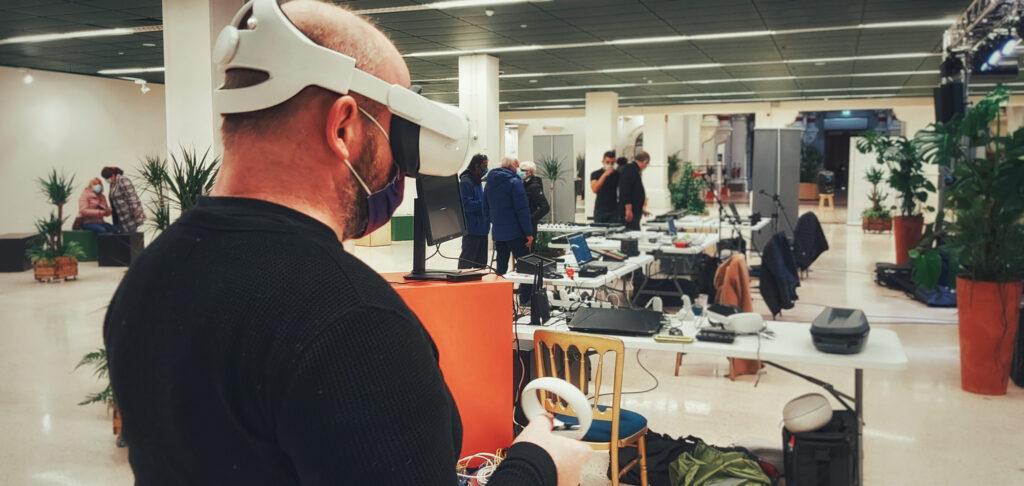
Research partnerships
Performance without Barriers (PwB)
We at Drake Music are delighted to be in partnership with the Sonic Arts Research Centre at Queens university.

Founded in 2015, Performance without Barriers is a research partnership between Queen’s University Belfast’s School of Arts, English and Languages – specifically the Sonic Arts Research Centre and the Drake Music Project Northern Ireland. Together we explore the role of technology in removing the access barriers encountered by some disabled musicians in creative pursuits. Our work is rooted in the social model of disability, seeing disability as arising from attitudes in society and the design of our environment. Through participatory design practices, all of our work is led by the
insights of the disabled community. We view music as an important and powerful medium for personal expression, with the potential to
amplify the voices of those marginalized in society. We therefore focus our efforts on building sustainable environments for inclusive music-making that live beyond our research projects. Performance without Barriers is the proud recipient of the 2020 Vice Chancellors Prize for Research Innovation.
Have a read at some of the Research below.
Damian
A partnership between the QUB research group Performance Without Barriers with local charity Drake Music Northern Ireland research team has initiated research into how musicians with disabilities explore virtual reality musical instruments.
We explore how new affordances in human computer interaction can be exploited for music making in a search for matching a potentially wide diaspora of atypical
musicians with wider implications for accessibility with contemporary immersive technologies. We have engaged in a method of participatory design, musicians with congenital and acquired disabilities join us in assessing contemporary hardware using hand recognition and enter a series of co- design in virtual reality within the Unity game engine.
Alex
Alex investigated the application of music technology in inclusive music practices in Northern Ireland, shining a spotlight on issues surrounding the longevity of novel accessible digital musical instruments developed for research purposes.
While such devices can be highly enabling for disabled musicians, they seldom see sustained use outside of academia. Three physically disabled musicians from the third-sector
community music organisation, the Drake Music Project Northern Ireland, collaborated with the author to design novel musical instruments that address the unique access barriers they encounter in music-making.
Leo
Dementia is becoming more of a problem every year, and by 2050 we will have about 140 million people with dementia. As such, this is a large area of research, and various studies have shown that virtual reality is used quite frequently and is beneficial for dementia patients.
There is a big trend towards the use of VR in healthcare and mental health, as medicine is the second largest application of VR after gaming. My research looks at how to interact and create VR environments together with people with dementia as there is a lack of combined research on participatory design, VR, and dementia. My research examines the process of developing an immersive virtual environment based on the memories of people with dementia. This is done with the participants, caregivers, and specialists from dementia care and accessible workshops (Praxis Care & Drake Music NI). I interview participants about happy memories from their past to recreate in virtual reality, as much as possible, the place they enjoyed with their favorite music – the so-called tailored virtual reality experience. For example, the street where the participant went shopping, the living room in the house where they spent their youth, their favorite
park, etc. This co-design process should answer the key questions in researching the motivation and response to the collaboration of people with dementia: a) How can the process of co-designing be applied to creating a virtual reality environment with people with dementia? b) What are the immediate reactions of each participant when using the co-designed VR environment? c) What elements do participants think are useful in the co-design process of the tailored VR environment? It is known that people with dementia often suffer from depression and a lack of motivation. That’s why I’d like to explore whether co-designing with them makes them feel engaged and motivated. Whether they are interested in continuing the design process and experiencing VR again. In other words, do they feel they need the product?

